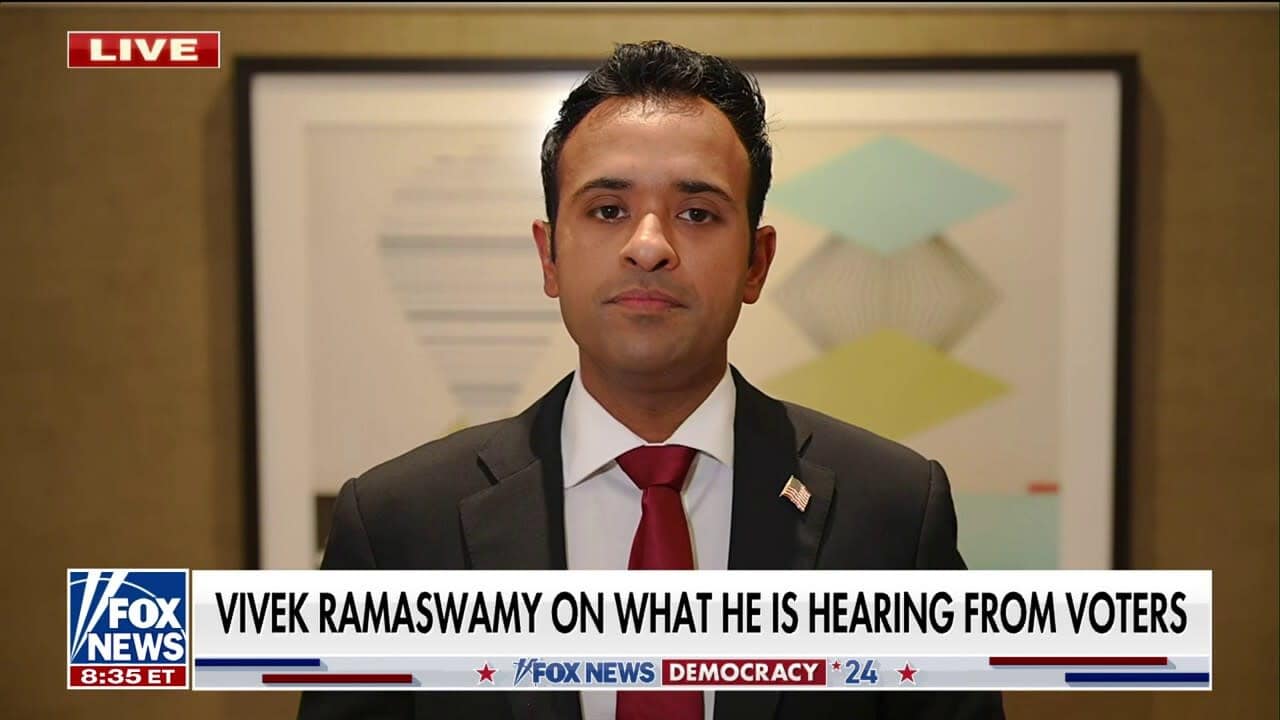Republican presidential candidate Vivek Ramaswamy vows to deport the children of illegal migrants born on U.S. soil even though they are U.S. citizens under the 14th amendment.
“There are legally contested questions under the 14th amendment of whether the child of an illegal immigrant is indeed a child who enjoys birthright citizenship or not,” Ramaswamy said after a town hall in Iowa.
Vivek Ramaswamy Questions Birthright Citizenship
Ramaswamy questions whether the children of undocumented migrants are entitled to protection under the 14th Amendment.
“Under the legal theory that the child of an illegal immigrant is not someone who enjoys birthright citizenship, then it would be perfectly legally permissible to remove the entire family unit,” he said.
The 14th Amendment states that “all persons born or naturalized in the United States, and subject to the jurisdiction thereof, are citizens of the United States and of the State wherein they reside.”
U.S. Citizenship and Immigration Services notes that “A person born in the United States who is subject to the jurisdiction of the United States is a U.S. citizen at birth, to include a child born to a member of an Indian, Eskimo, Aleutian, or other aboriginal tribe.”
Florida Gov. Ron DeSantis has similarly questioned birthright citizenship by calling it “inconsistent with the original understanding of the 14th Amendment.”
Birthright Citizenship Disputed By Scholars
Vivek Ramaswamy notes that there are other opinions on what the 14th Amendment means.
“There are legally contested questions under the 14th Amendment of whether the child of an illegal immigrant is indeed a child who enjoys birthright citizenship,” he said. “They are contested.”
A minority of legal scholars including John Eastman, Michael Anton, and Judge James C. Ho have argued that birthright citizenship is not absolute.
“Those framers understood, as did America’s founders, that birthright citizenship is inherently self-contradictory. A just government in the modern world rests on the social compact, a freely entered agreement among free citizens. That compact’s scope and authority extend only to those who have consented to its terms and whose membership has been consented to by all other citizen-members. A compact that anyone can join regardless of the wishes of its existing members is not a compact. As President Trump likes to say, ‘If we don’t have a border, we don’t have a country,’” Anton wrote in a Washington Post column. “Judges faithful to their oaths will have no choice but to agree with him. Birthright citizenship was a mistake whose time has gone.”
Birthright Citizenship Defended
Among Republicans, others contend that birthright citizenship is settled law. AEI legal scholar John Yoo makes such a claim.
“The traditional American position, finally, works no great legal revolution. The Supreme Court has consistently read the 14th Amendment to grant birthright citizenship. United States v. Wong Kim Ark (1898) upheld the American citizenship of a child born in San Francisco to Chinese parents, who themselves could never naturalize under the Chinese Exclusion Acts. The Court held that ‘the Fourteenth Amendment affirms the ancient and fundamental rule of citizenship by birth within the territory, in the allegiance and protection of the country, including all children here born of resident aliens.’ It also explicitly rejected the argument that aliens, because they owed allegiance to a foreign nation, were not within “the jurisdiction” of the United States,” Yoo wrote. “The 14th Amendment settled the question of birthright citizenship. Conservatives should not be the ones seeking a new law or even a constitutional amendment to reverse centuries of American tradition.”
John Rossomando is a defense and counterterrorism analyst and served as Senior Analyst for Counterterrorism at The Investigative Project on Terrorism for eight years. His work has been featured in numerous publications such as The American Thinker, The National Interest, National Review Online, Daily Wire, Red Alert Politics, CNSNews.com, The Daily Caller, Human Events, Newsmax, The American Spectator, TownHall.com, and Crisis Magazine. He also served as senior managing editor of The Bulletin, a 100,000-circulation daily newspaper in Philadelphia, and received the Pennsylvania Associated Press Managing Editors first-place award for his reporting.

